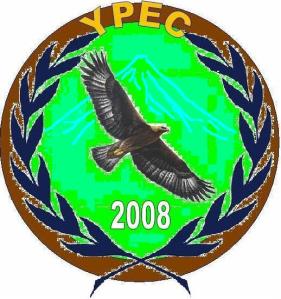G.R. No. 193531 December 14, 2011
Peralta, J. En Banc
Facts:
Petitioner was a Slot Machine Operations Supervisor (SMOS) of
respondent Philippine Amusement and Gaming Corporation (PAGCOR). On the basis
of an alleged intelligence report of padding of the Credit Meter Readings (CMR)
of the slot machines at PAGCOR-Hyatt Manila, then Casino Filipino-Hyatt (CF
Hyatt), which involved the slot machine and internal security personnel of
respondent PAGCOR, and in connivance with slot machine customers, respondent
PAGCOR's Corporate Investigation Unit (CIU) allegedly conducted an
investigation to verify the veracity of such report.
Based on the CIU's investigation of all the CMR receipts and
slot machine jackpot slips issued by CF Hyatt for the months of February and
March 2007, the CIU identified the members of the syndicate who were
responsible for such CMR padding, which included herein petitioner.
On May 4, 2007, the CIU served petitioner with a Memorandum
of Charges for dishonesty, serious misconduct, fraud and violation of office
rules and regulations which were considered grave offenses where the penalty
imposable is dismissal.
On August 4, 2007, petitioner received a letter dated August
2, 2007 from Atty. Lizette F. Mortel, Managing Head of PAGCOR's Human Resource
and Development Department, dismissing him from the service.
On September 14, 2007, petitioner filed with the CSC a
Complaint against PAGCOR and its Chairman Efraim Genuino for illegal dismissal,
non-payment of backwages and other benefits, alleging among others that he sent
a facsimile transmission of his letter reconsideration within the period
prescribed by the Uniform Rules on Administrative Cases in the Civil Service.
Respondent PAGCOR filed its Comment wherein it alleged, among
others, that petitioner failed to perfect an appeal within the period and
manner provided by the Uniform Rules on Administrative Cases in the Civil
Service Law.
On June 23, 2008, the CSC, treating petitioner's complaint as
an appeal from the PAGCOR's decision dismissing petitioner from the service,
issued Resolution No. 081204 denying petitioner's appeal.
Petitioner filed with the CA a petition for review under Rule
43 of the Rules of Court seeking to set aside the twin resolutions issued by
the CSC.
Issue:
Whether or not the Civil Service Commission erred in ruling
that there was no valid letter/motion for reconsideration submitted to
reconsider petitioner's dismissal from the service.
Ruling:
In dismissing the petition, the CA found that petitioner
failed to adduce clear and convincing evidence that he had filed a motion for
reconsideration. It found insufficient to merit consideration petitioner's
claim that he had sent through a facsimile transmission a
letter/reconsideration dated August 13, 2007 addressed to PAGCOR's Chairman,
members of the Board of Directors and the Merit Systems Protection Board; that
assuming arguendo that a letter reconsideration was indeed sent through a facsimile
transmission, such facsimile transmission is inadmissible as electronic
evidence under the Electronic Commerce Act of 2000; and that a review of the
CSC assailed resolution revealed that the telephone numbers where petitioner
claimed to be the recipient of the faxed document sent was not that of PAGCOR's
Office of Board of Directors.
Petitioner contends that he filed his letter reconsideration
of his dismissal on August 13, 2007, which was within the 15-day period for
filing the same; and that he did so by means of a facsimile transmission sent
to the PAGCOR's Office of the Board of Directors. He claims that the sending of
documents thru electronic data message, which includes facsimile, is sanctioned
under Republic Act No. 8792, the Electronic Commerce Act of 2000.
Clearly, a motion for reconsideration may either be filed by
mail or personal delivery.
In Garvida v. Sales, Jr., we found inadmissible in evidence
the filing of pleadings through fax machines and ruled that:
x x x A facsimile is not a genuine and authentic pleading. It
is, at best, an exact copy preserving all the marks of an original. Without the
original, there is no way of determining on its face whether the facsimile
pleading is genuine and authentic and was originally signed by the party and
his counsel. It may, in fact, be a sham pleading. x x x
Moreover, a facsimile transmission is not considered as an
electronic evidence under the Electronic Commerce Act. In MCC Industrial Sales
Corporation v. Ssangyong Corporation, we determined the question of whether the
original facsimile transmissions are "electronic data messages" or
"electronic documents" within the context of the Electronic Commerce
Act, and We said:
We, therefore, conclude that the "electronic data
message" and "electronic document," as defined under the
Electronic Commerce Act of 2000, do not include a facsimile transmission.
Accordingly, a facsimile transmission cannot be considered as electronic
evidence. It is not the functional equivalent of an original under the Best
Evidence Rule and is not admissible as electronic evidence.
WHEREFORE, the petition is DENIED. The Decision dated April
22, 2010 and the Resolution dated July 30, 2010 of the Court of Appeals are
hereby AFFIRMED.













No comments:
Post a Comment